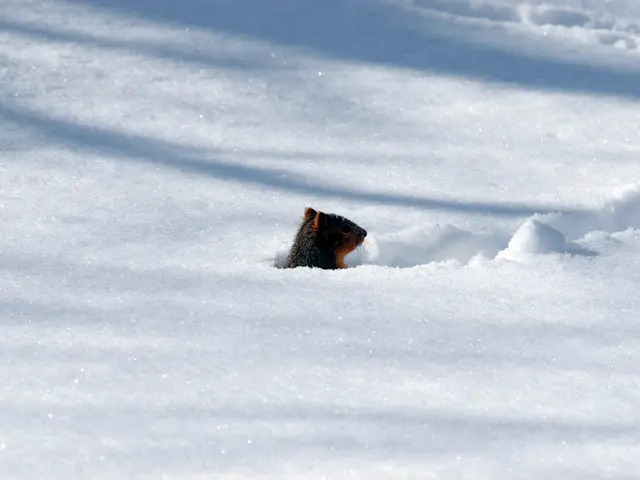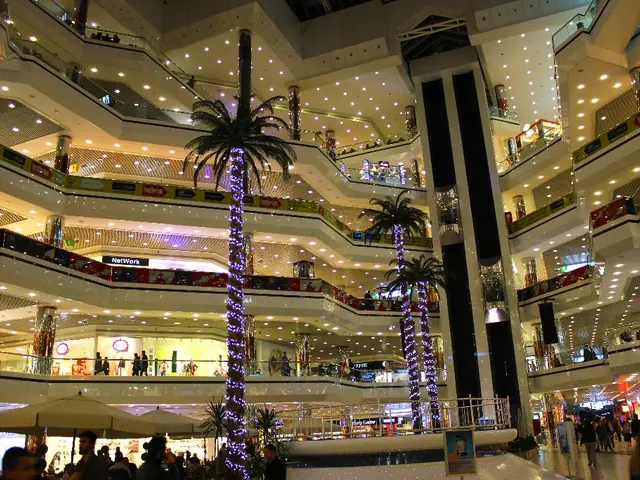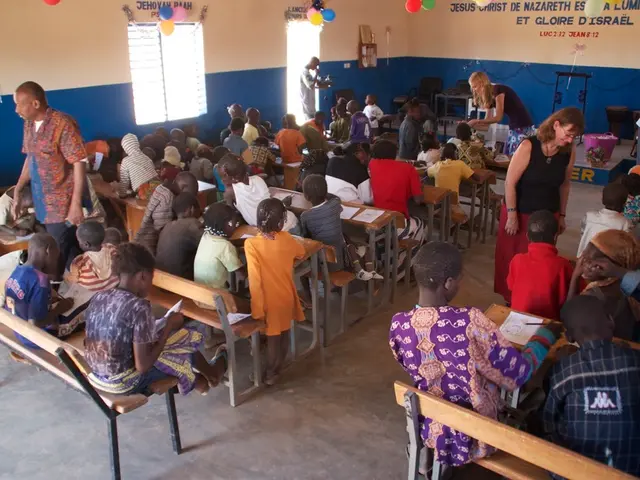Ukraine not bearing duty for ensuring safety of foreign officials journeying to Moscow for May 9 parade, claims Zelensky.
Foreign Leaders at Russia's Victory Day Parade: A Delicate Diplomatic Dance
The upcoming Victory Day Parade in Moscow, hosted by Russian President Vladimir Putin, has sparked a whirlwind of debate and weighs heavily on the diplomatic shoulders of various world leaders. Ukraine's President Volodymyr Zelensky has made it clear that foreign officials attending the parade on May 9 cannot expect safety guarantees from his government, as incidents on Russian soil are beyond Kyiv's control.
Welcoming the World, But Can They Afford to Attend?
A plethora of nations have been extended an invitation to join Russia in celebrating the 80th anniversary of the Soviet Union's victory over Nazi Germany. The guest list is impressive, boasting leaders from the EU's Slovakia and aspiring member Serbia, as well as global powers such as China, India, and Brazil. Yet, not all attending dignitaries will represent their nations at the same level, with India, for example, sending Defense Minister Rajnath Singh instead of a higher official due to heightened tensions with Pakistan.
A Thorny Path to Diplomacy
The decision for foreign leaders to attend this event is a complex one, teetering on the edge of geopolitical maneuvering and potential political fallout. As the conflict in Ukraine continues to dominate international headlines, Ukraine remains a significant source of concern for numerous countries, resulting in pressure to avoid seeming supportive of Russia's actions.
Countries that choose to attend the parade must navigate the delicate balance of maintaining geopolitical relations, avoiding antagonizing partners like the EU and other Western nations, and demonstrating a degree of neutrality. Additionally, security measures are likely to be robust, given the high-profile nature of the event and the lingering tension across various regions.
Tensions Rising, safety Concerns Mounting
The ongoing international tensions surrounding the conflict in Ukraine have heightened safety concerns for those planning to attend Russia's Victory Day Parade. The EU has issued advisories, emphasizing the risk of appearing to support Russia's actions in Ukraine and the potential impact on diplomatic relations between Moscow and European countries.
Other regions, like South Asia, experience their own brand of instability, with India scaling back its attendance due to growing tensions with Pakistan. These factors reinforce the significance of the decisions these leaders must make regarding their attendance and the potential repercussions that come with it.
Looking Back, Moving Forward
A violent reminder of the risks associated with diplomatic visits to Russia was the missile strike that occurred in Odesa during a visit by Greek Prime Minister Kyriakos Mitsotakis in March 2024, which claimed the lives of five individuals. As world leaders prepare to engage in Russia, they would do well to remember these incidents and consider the potential dangers that may lie ahead.
Russia traditionally holds the end of World War II in Europe on May 9, adorned with pompous military parades. While most other European nations, including Ukraine, celebrate May 8 as Victory in Europe Day, this year's parade may prove to be a significant test for those attending, as they tread delicately on the shifting sands of global politics.
- Russian President Vladimir Putin, in his capacity as host, has cautioned foreign leaders about the potential risks and repercussions of attending the Victory Day Parade in Moscow.
- Despite the various concerns, several world leaders, such as those from Slovakia, Serbia, China, India, and Brazil, have chosen to celebrate the 80th anniversary of the Soviet Union's victory over Nazi Germany alongside Putin.
- The visits from foreign leaders to Russia's Victory Day Parade are fraught with diplomatic challenges, particularly in light of the ongoing conflict in Ukraine and the need to maintain geopolitical relations while avoiding appearing supportive of Russia's actions.
- As world leaders prepare to attend the parade, they should remain vigilant and mindful of the past, recalling incidents such as the missile strike in Odesa during a visit by Greek Prime Minister Kyriakos Mitsotakis in March 2024, which underscore the potential dangers that may arise during diplomatic visits to Russia.







